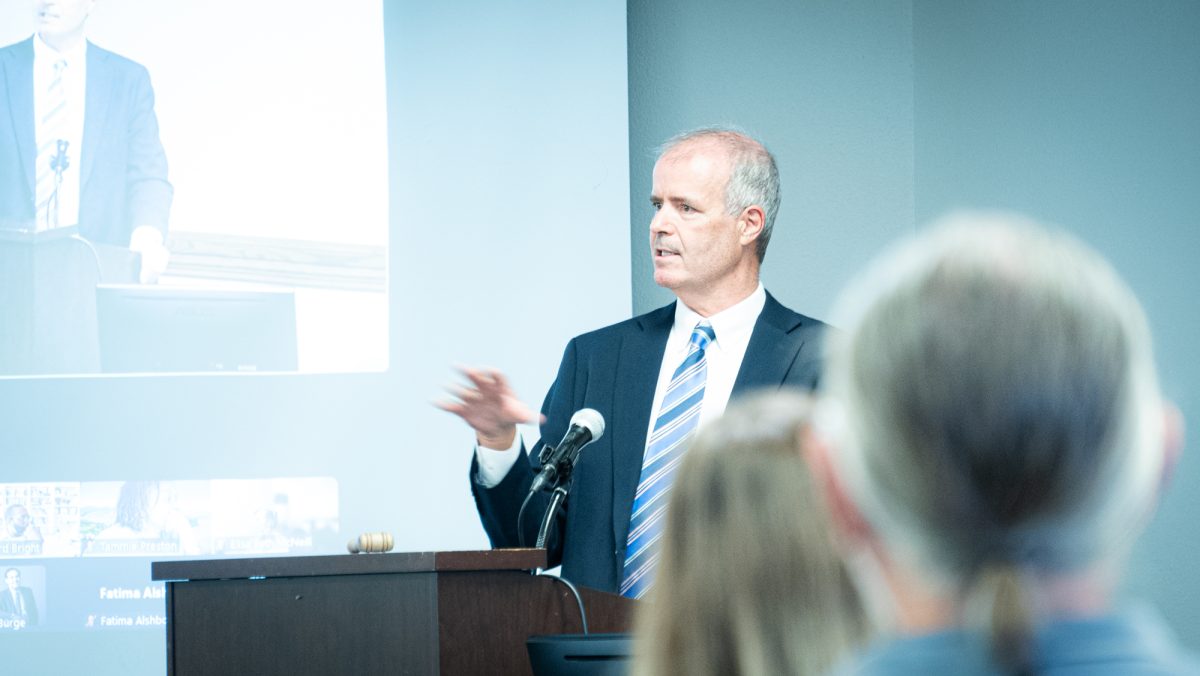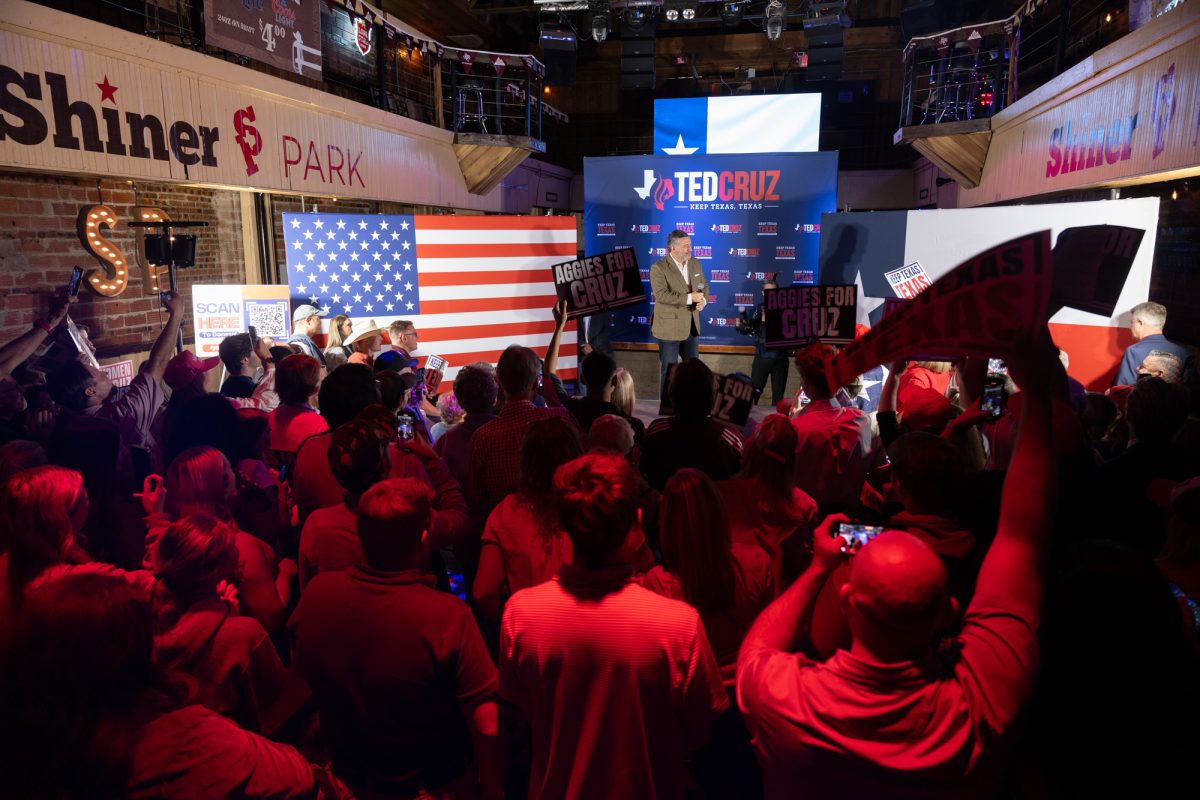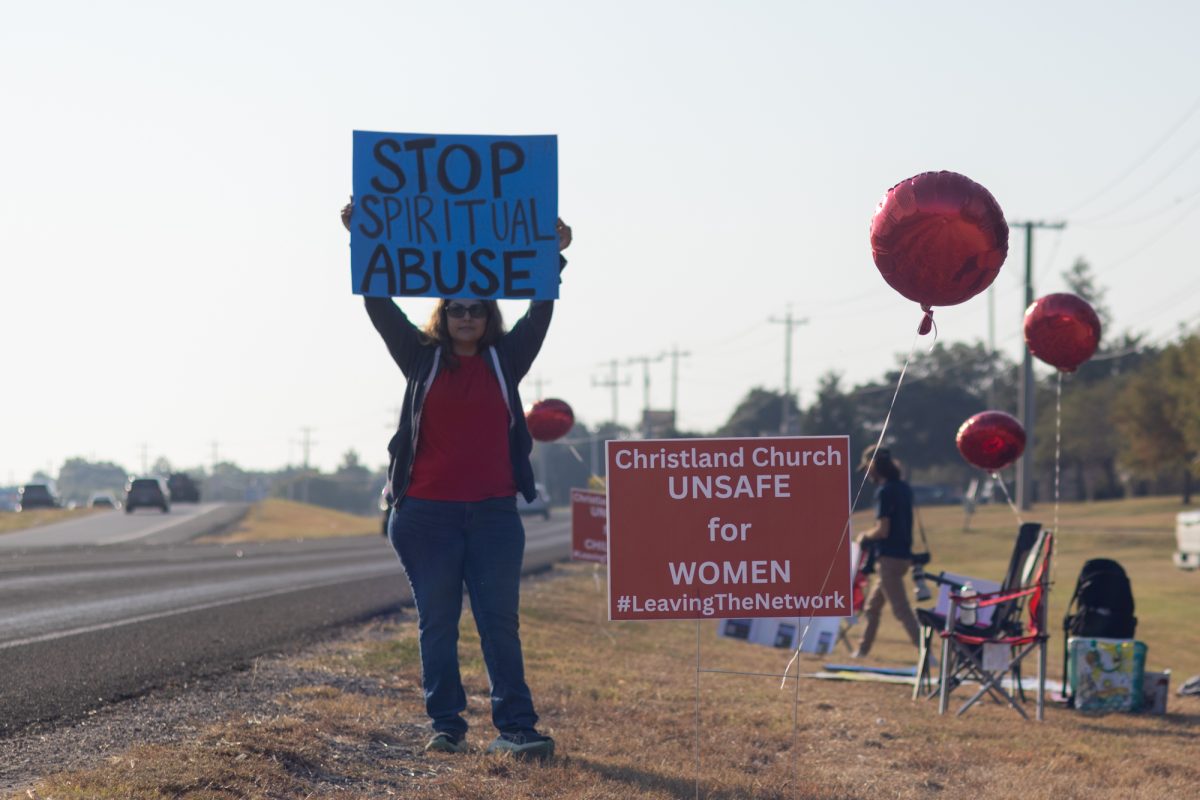A guest lecturer from the University of Essex examined the defining foreign policy decisions faced by world leaders and the delicate steps they must take to address those decisions.
The George Bush Library Presidential Orientation Theater hosted Thomas Scotto, professor of government at the University of Essex, for a Monday lecture titled, “When a ‘Red Line’ Wasn’t Much of a Red Line.” The lecture explained what consequences, if any, stem from the decision of a president to change his or her mind on publicly stated claims regarding foreign affairs.
The expectation from leaders of representative-democratic governments is that when they make a statement or threat in regards to foreign policy, they will not back down from that, said Scotto. Otherwise they will pay a significant cost from the electorate, he said.
“Leaders of representative governments are seen as more credible when they make threats towards authoritarian regimes, because when they say they are going to do something, they are under a lot of pressure to be good for their word,” Scotto said. “If they don’t, they will be seen as weak and therefore lose credibility.”
However, much of Scotto’s polling and research has shown otherwise — leaders are often very ambiguous, Scotto said. He said it is actually very difficult to find evidence of this phenomenon throughout history.
“Historians look at this phenomenon, and it is really hard to find, because leaders don’t offer direct threats; they are ambiguous,” Scotto said.
Scotto used the current Syrian refugee crisis to explain how his surveys apply to current public opinion and the decisions made by representative governments. U.S. President Barack Obama and Prime Minister of the United Kingdom David Cameron both outwardly expressed they would condemn the use of chemical warfare in Syria and would use force to prevent this from happening.
“The Obama administration and Cameron condemn the actions of Assad, but still have a read on public opinion,” Scotto said.
In June of 2013, the United States received a report that chemical weapons were used, and that is when Obama’s theoretical “red line,” was crossed, Scotto said. This spread to the United Kingdom, whose Parliament quickly expressed that no intervention would be made, and made way for Obama to begin having cold feet on the issue as well, Scotto said.
“Obama has huge misgivings, and the icing on the cake is that for the first time since the American Revolution, the parliament of the United Kingdom rebuffs a prime minister on a matter of foreign policy,” Scotto said. “The cold feet the president had were exacerbated by the British Parliament pulling out.”
The question that needs to be asked, Scotto said, is how does a decision by these two presidents to go back on a foreign policy decision affect them among public opinion and credibility.
“One of the things that will surprise people … in this situation, is that the president in the U.K. and U.S. both won support for deciding to stay out,” Scotto said. “There is a little bit of a price that a president pays, but not that much.”
Even though you would think that the electorate would be upset that a representative leader would back down from previous statements, that does not seem to be the case, Scotto said.
He said it actually seems to do more with what the electorate wants at those current times.
“Really, a lot of this is contingent upon what your electorate wants broadly speaking, it is not context specific, the wider worry becomes where does this leave representative democracies,” Scotto said.
What this really could come down to is that leaders are aware of the decisions they are making and know how these decisions are going to impact their following, Scotto said. Depending on the party a president represents, it can impact the price you pay from the electorate based off of what their voters would typically support.
“If George W. Bush backed down, he would pay a greater price from the voters that actually matter to him, but for someone like Obama, his party is often less likely to use force to intervene, so when backing down he will not pay the same cost,” Scotto said.
Guy Whitten, a Texas A&M professor and Cornerstone Fellow, said the surveys and research by Scotto are interesting, because they reveal information that you would not typically expect.
“I would have expected that people would be very frustrated with a president backing down, even if that meant the president was following through with their own political views,” Whitten said.








